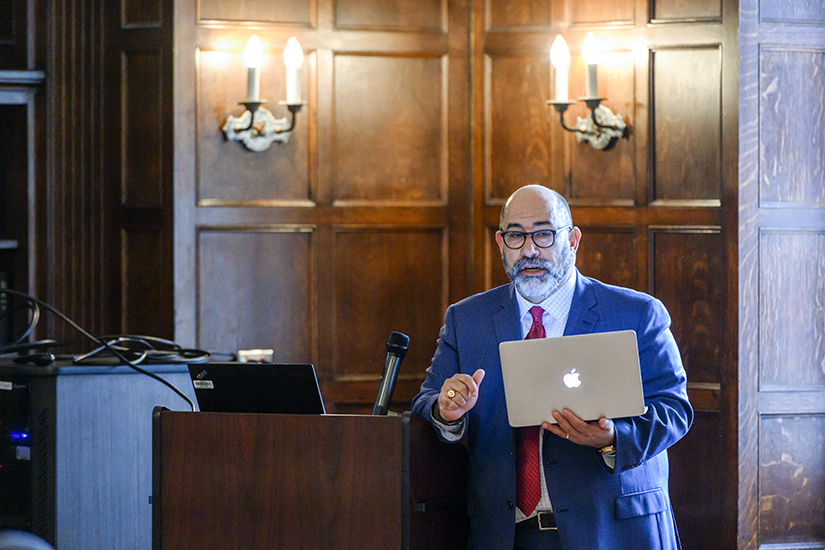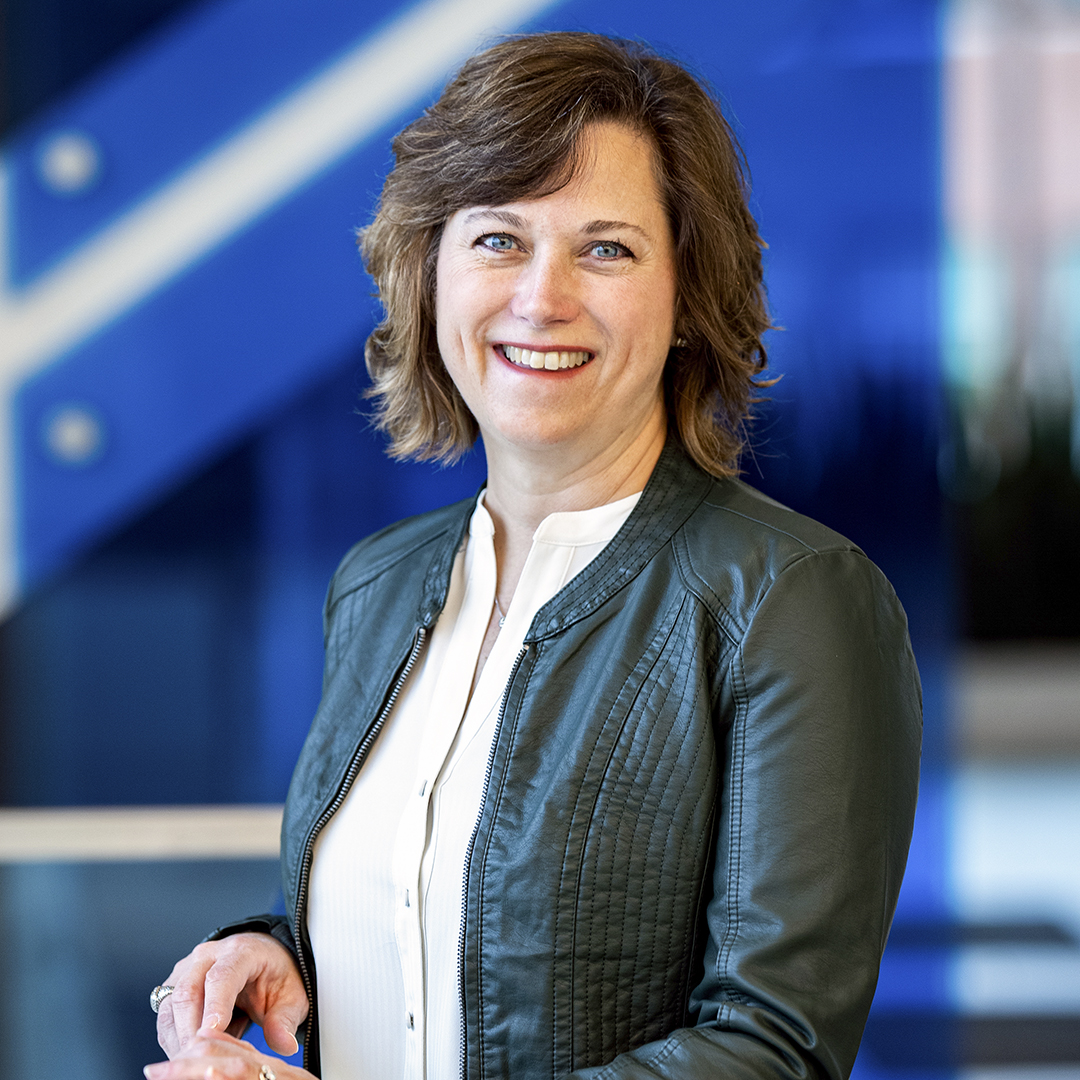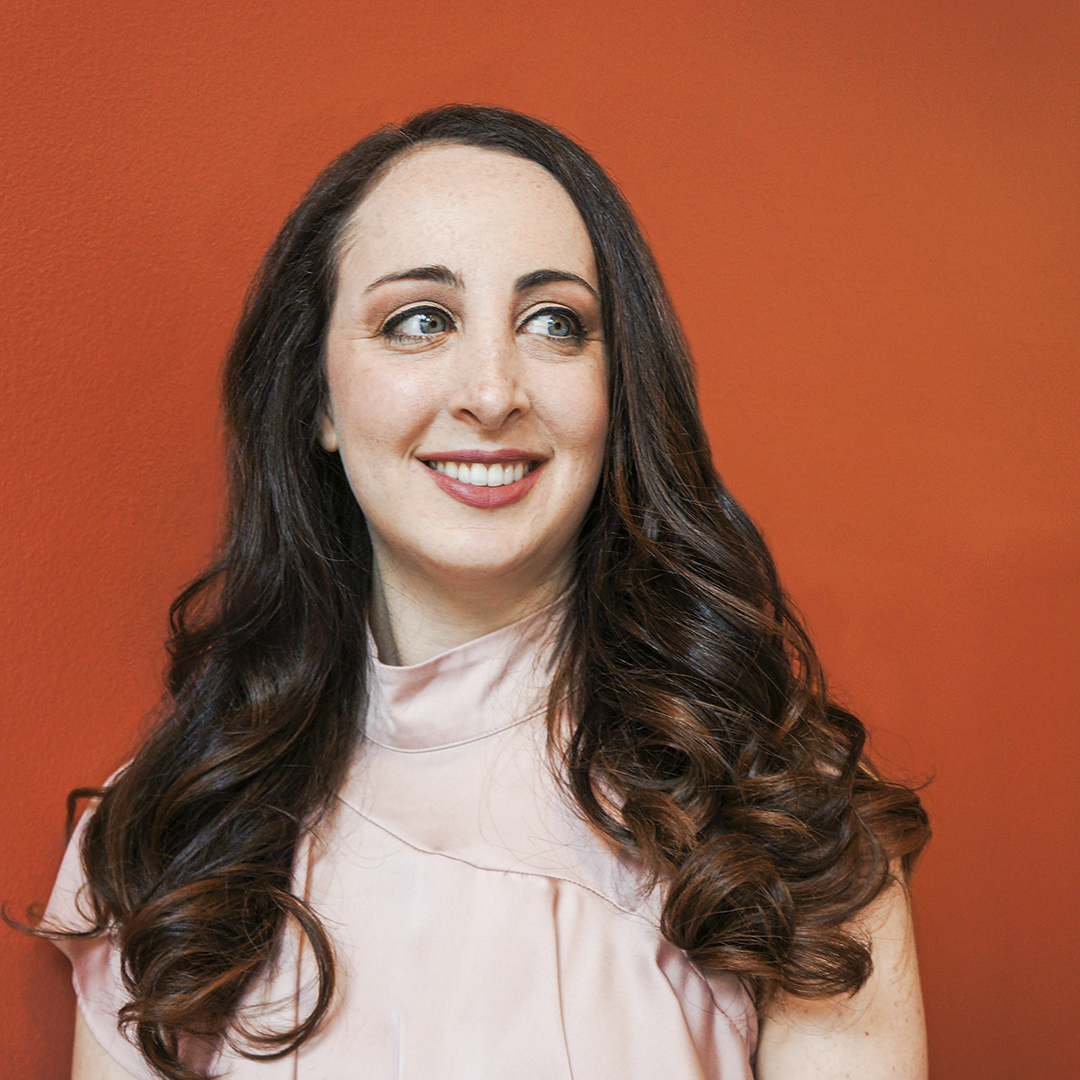Charles DeSantis couldn’t be more aptly named. To his mind, of course, he is simply a man who has found a purpose in life. But more so, he’s had the gift and honor of working at a values-driven institution where he can do everything in his power to pursue that purpose.
To anyone hearing his story for the first time, DeSantis would seem to be nothing less than a modern-day saint—a man who has made it his life’s work to serve others. A man who has spent years trekking through slums in Nairobi to bring art supplies to children and visiting with families forced to flee from Somalia, Syria, and every other corner of the world. A man who has helped raise tens of millions of dollars in support of those refugees and who considers himself the lucky one to have had opportunities to meet and work with them.
“I was raised with a perspective of gratitude and giving,” DeSantis offers. “My parents had such a tremendous belief in caring for and helping the people of the world, and I think that is what has opened doors for me.”
Over the years, those open doors have led DeSantis all across the country, from the “training grounds” of the Federal Reserve System to top-level human resources positions at Stanford University and Gap Inc. But no opportunity has had a greater impact on his life than the chance to join the benefits team at Georgetown University.
“Georgetown is the oldest Catholic and Jesuit university in the United States, but it really doesn’t matter who you are or what you believe or where you come from. They have a values-based system that anyone can live by,” DeSantis explains. “There is a culture of care and service here, and that is something I can stand behind full-heartedly.”
In fact, as both associate vice president of faculty and staff benefits and Georgetown’s chief benefits officer, it is DeSantis’s job to serve others.
“It doesn’t matter whether I’m serving a faculty member or a facilities worker. I want to make sure that we give everyone across the community the things that they need to do their jobs well and serve the mission of Georgetown,” DeSantis stresses. “They should be able to focus on that work without having to worry about accessing their benefits.”
“That’s why I get out of bed every day—for my family and friends, for the community where I live and work, and for those in the greatest need.”
Since transitioning to Georgetown in 2006, DeSantis has instituted a wellness program, GUWellness, designed to eliminate those worries.
GUWellness focuses on holistic wellness, he explains, and allows him and his teams to “care for our people wherever they are in their lives, whether they’re trying to purchase a house, practicing mindfulness, or interested in learning yoga or enrolling in parenting classes.”
But in order to meet people where they are on their journeys, DeSantis emphasizes, you have to be in constant communication with them. That is why he holds a monthly benefits Q&A session open to everyone at the University as well as monthly communications about GUWellness offerings and messaging.
“Access to that information is what helps people make the best choices they can for themselves and their families,” he says. “That’s why I get out of bed every day—for my family and friends, for the community where I live and work, and for those in the greatest need.”
Of course, DeSantis’s mission to serve those in need has taken him far beyond his home, far beyond the broader DC area.
“Georgetown selects a group of people to go on these Magis service trips every year, and in 2006, maybe three or four months after I came here, I was invited by the head of mission ministry to join the trip,” DeSantis recalls. “The funny thing was, it had always been a personal goal of mine to do work in Africa—I just always thought that I would only get to do that when I retired.”
But when DeSantis and his colleagues landed in Kenya in June 2007, his belief that he was on that trip for a reason began to waver.
“I remember being in this fog of jet lag, walking around and trying to ground myself—it can be shocking, if you’ve never seen third-world poverty before,” DeSantis says. “And I kept having this one thought—why am I here? What is that reason?
“And then I looked up and saw this small child in a sweater walking towards me,” continues the AVP, “an adorable child, walking through the mud and waste of the slum with no shoes. I asked his mom if I could take a picture of him, and then, as I was walking away, I realized—if there was just for only one reason I was in Kenya, it was for the children.”

All throughout that trip, DeSantis made a point of meeting children in need—children living in poverty, children affected by HIV and AIDS, urban refugee children, and children attending a school in the middle of one of Nairobi’s largest slum, Kibera.
“But as soon as you’re with these children, you forget all the dirt and the harsh environment,” DeSantis says. “Because these children are so hopeful and so beautiful. They believe in the world. They believe in Kenya. And they are just so happy to see you.”
While looking around the school, however, DeSantis noticed that there weren’t any paintings or drawings or other forms of visual art. And to a lifelong painter like him, the absence was jarring. “The headmaster told me that they didn’t teach art at the school because it wasn’t part of the Kenyan curriculum,” DeSantis recalls. “‘But if you bring it,’ he told me, ‘it will be done.’”
And in 2008, that is exactly what DeSantis and a Georgetown colleague did. He found donors, collected supplies, and flew back to Nairobi to teach a two-week art course that covered everything from the Mona Lisa to seascapes. And at the end of that session, as the headmaster of the school walked through to see what the children had been working on, DeSantis witnessed something incredible.
“He was looking at the pictures the children had painted, which were all great,” DeSantis says. “But there was this one student who had done an exceptional job, and when I told the headmaster which student that was, he said, ‘This isn’t possible. He’s failing out of school—we were getting ready to expel him.’
“It was so emotional to watch someone with such a huge responsibility on his shoulders have his breath taken away by what this boy had done, and what this boy could do in future,” recalls DeSantis, who has since gone on to found the Kibera Arts Institute and serve as chair of the US Association for UNHCR.
“I was dyslexic as a child, and painting helped boost my confidence,” DeSantis says. “I want to help these children find their confidence and their voices through art because that is something that nobody can take from them. They may own nothing, or next to nothing, but their ability to create is all their own.”
Art and Authorship
In addition to his titles as associate vice president, chief benefits officer, husband, father, and painter, Charles DeSantis also holds the distinction of being a published author. He has written two books, one based on his experiences in Africa: Smart, Beautiful, and Important: Teaching art to AIDS-affected orphans in Africa’s largest slum and another about his children, Lucas and Lilly Go to Kindergarten.
Kaiser Permanente is committed to helping shape the future of health care. Our medical teams are empowered by industry-leading, innovative advances in disease prevention and state-of-the-art care delivery. We provide first-rate, affordable care to 12.3 million+ members in eight states and the District of Columbia. Learn more at kp.org.


